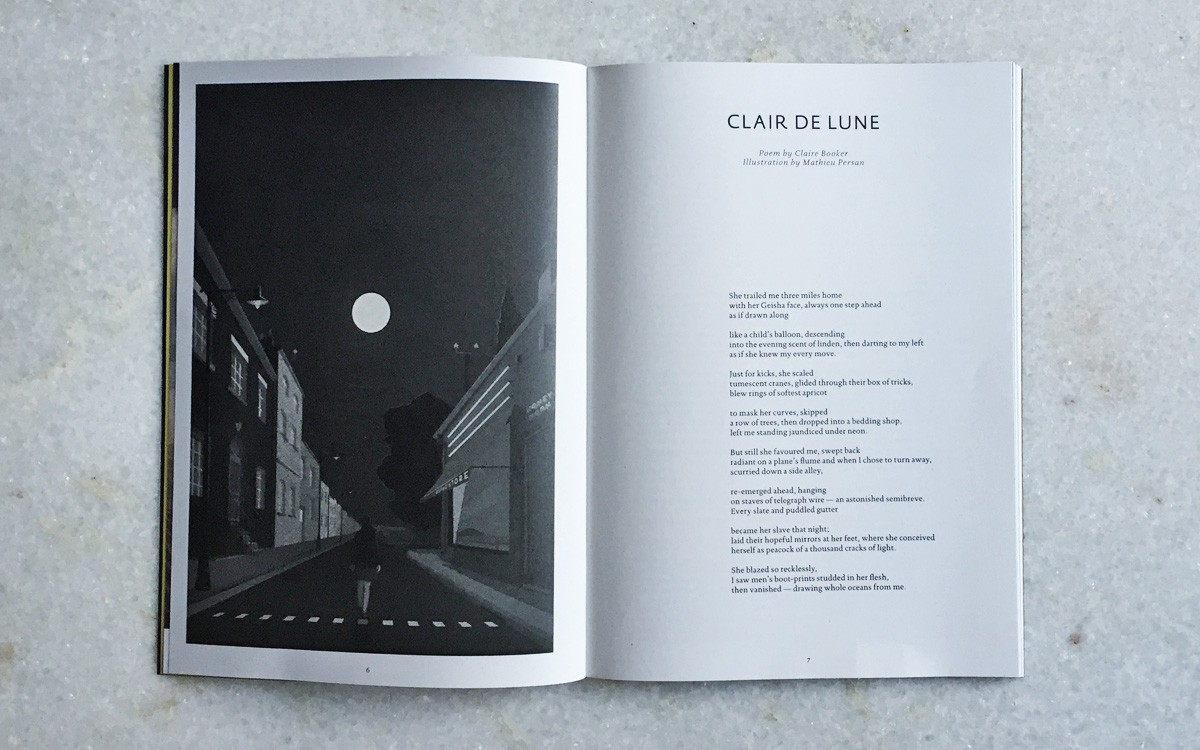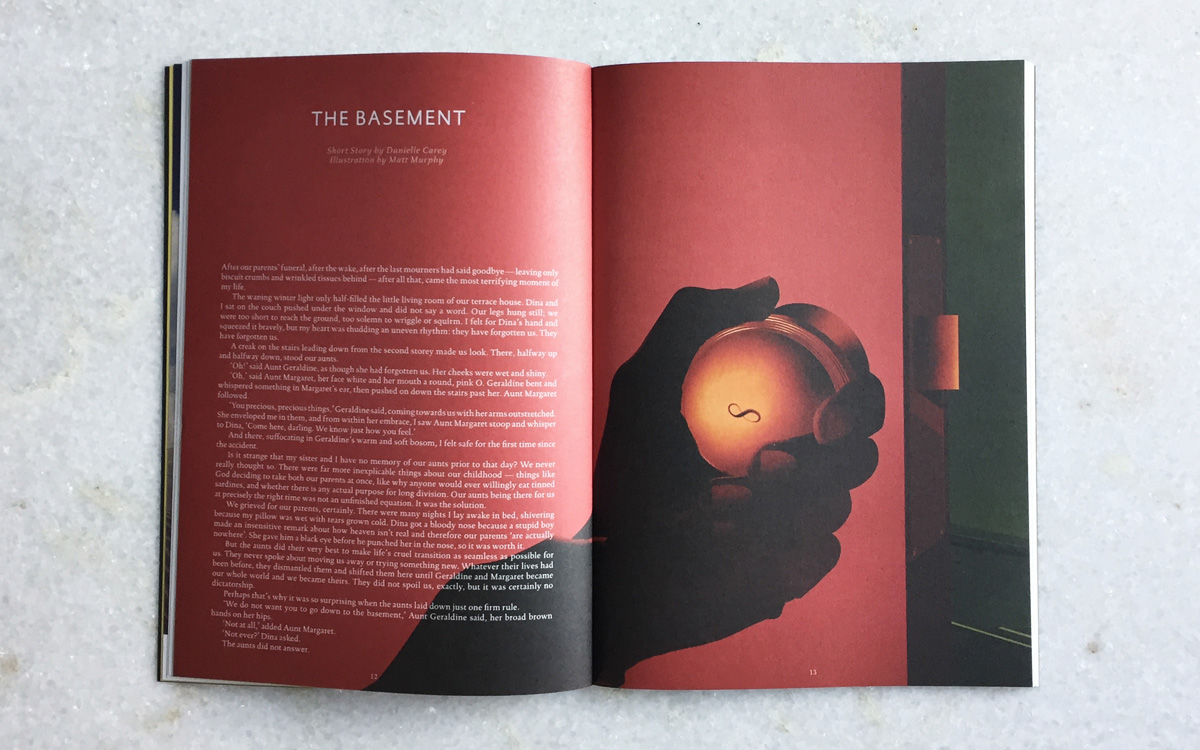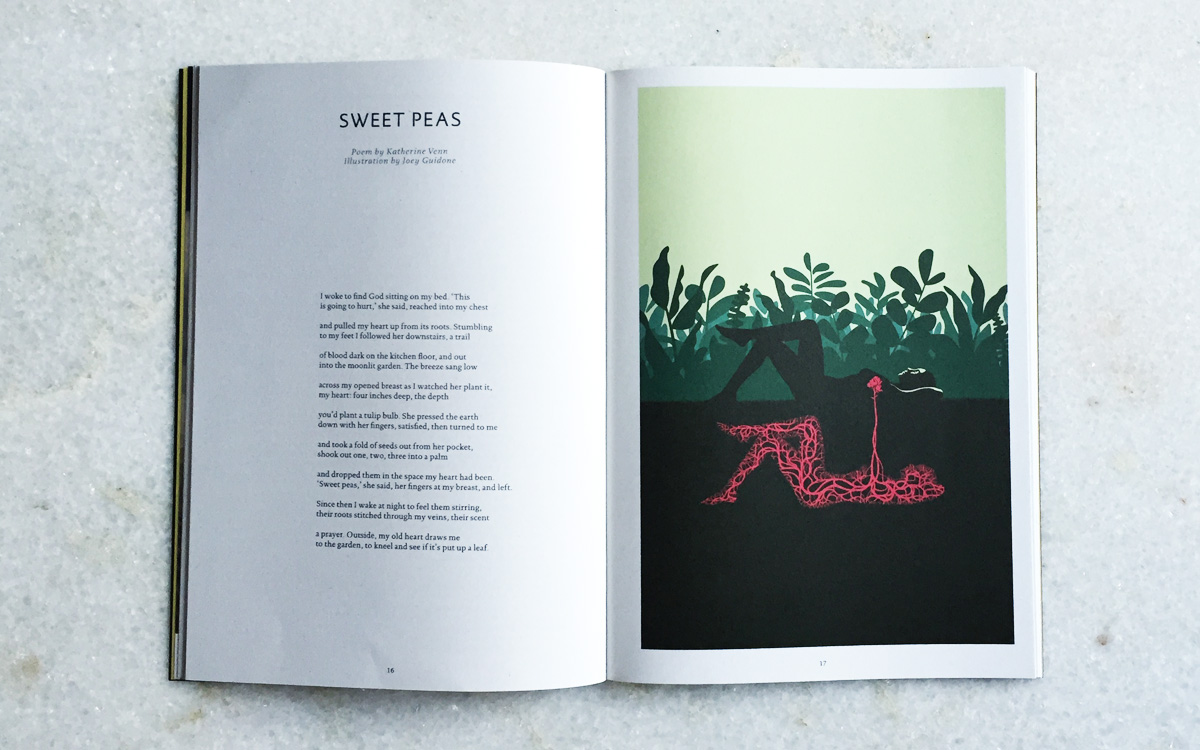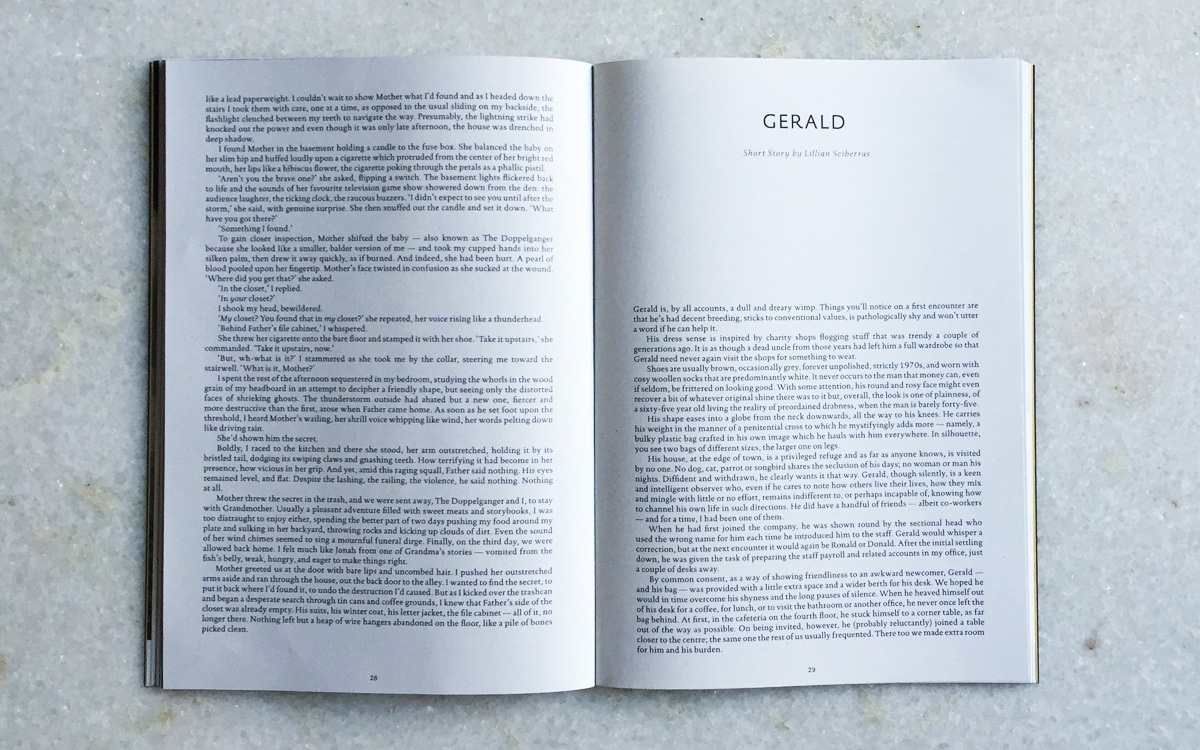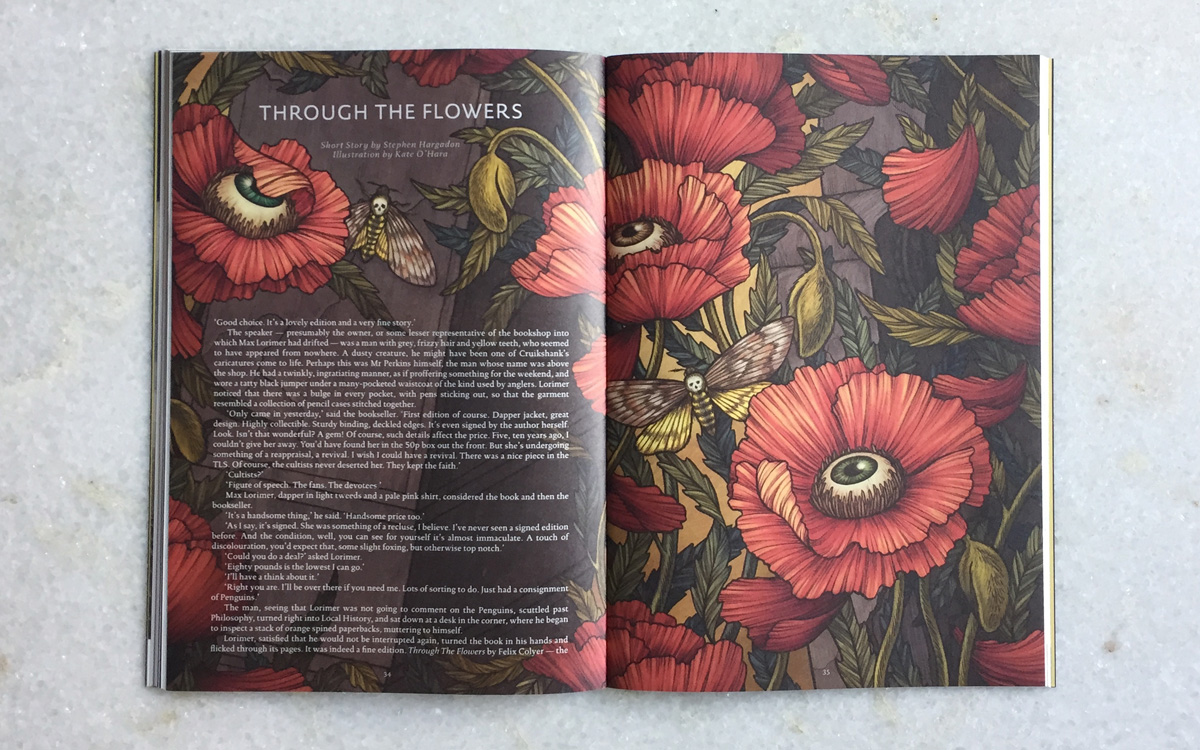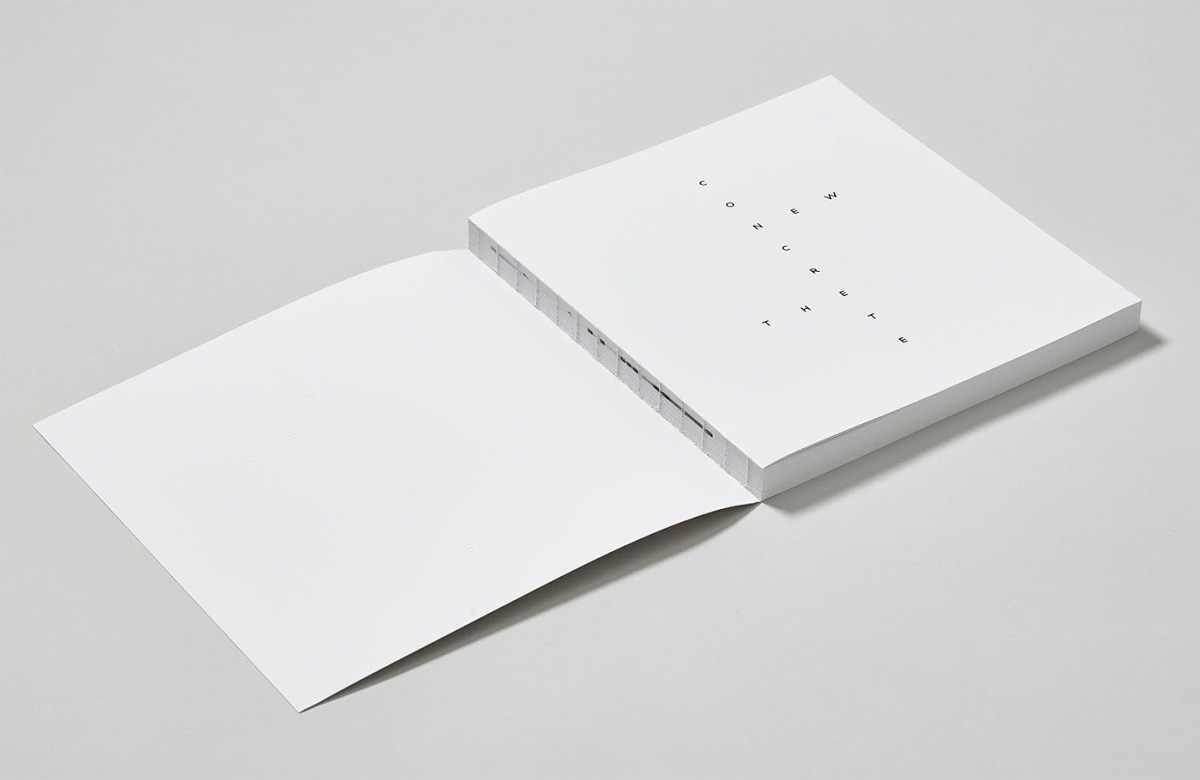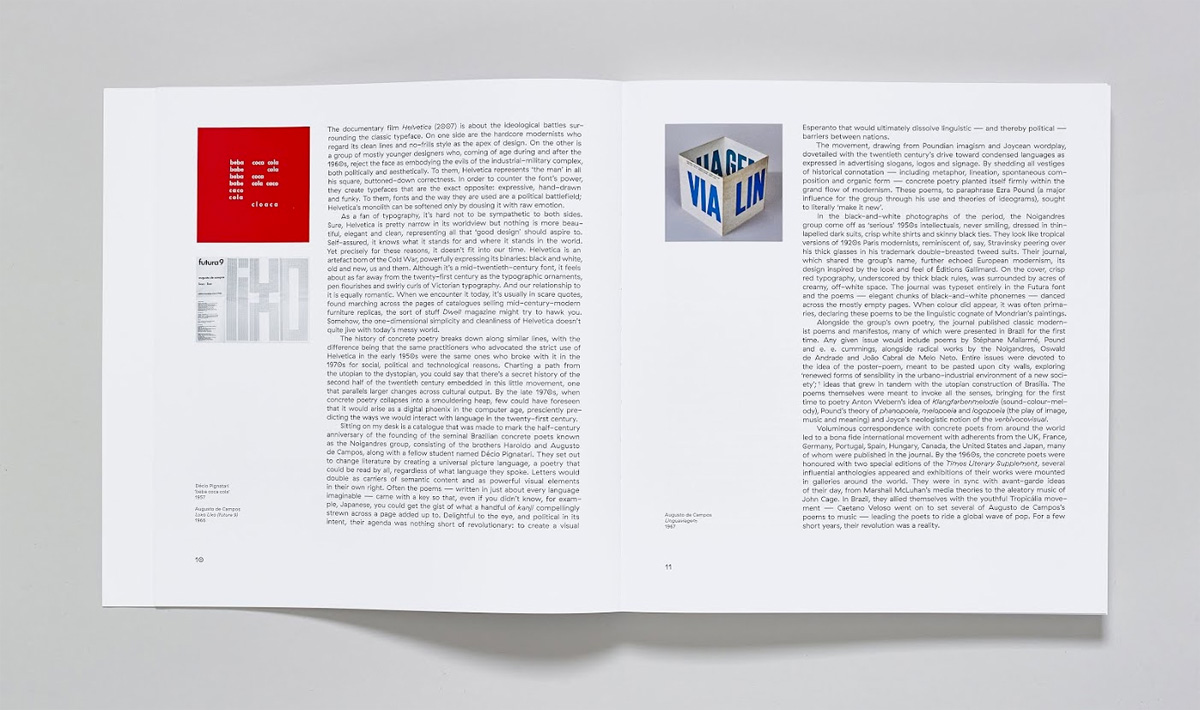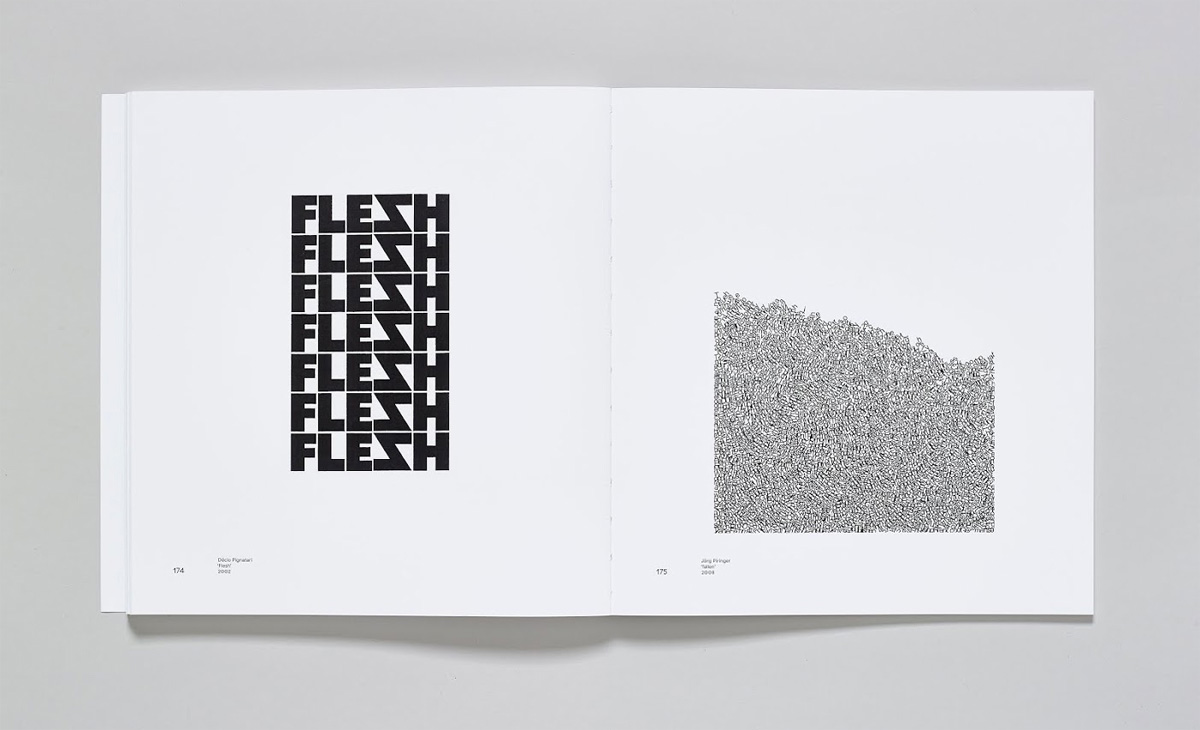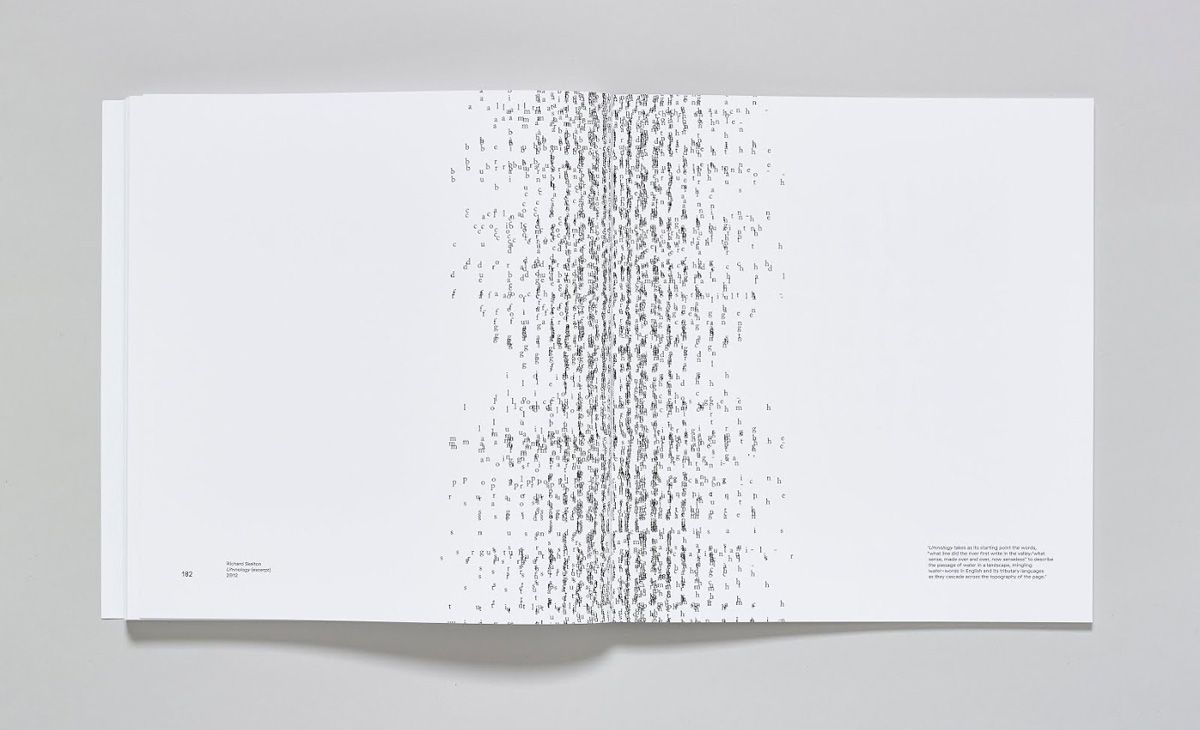Taken from his debut short story collection, The Dog, published by Penguin, read Jack Livings’ tale of divided relationships at a Chinese newspaper.
Someone had hung an enormous red banner across the back of the newsroom that read “Farewell and Long Life, Li Pai!” The man of the hour had positioned himself at a metal folding table directly beneath it. Young reporters came with his memoirs open to the title page, then solemnly presented letters of recommendation they had written for themselves. Li Pai signed them all. Ning had spent the morning watching from his cubicle as they filed by, so worshipful, so eager to drink from the font of the great one’s knowledge. The whole damn thing turned his stomach. Had anyone asked, Ning had no quarrel with him: Li Pai was a treasure. But Ning wasn’t one for celebrations.
There was to be a party that night at the Green Room. Just thinking about it made Ning cringe. He knew how it would play out. Fang, the economics editor, would kick things off by delivering a speech listing her own accomplishments and thanking Li Pai for his contributions to her stratospheric rise, and old Bang Wen would stutter his way through a selection of Du Fu’s poetry. The chief would grunt out whatever he’d written on his BlackBerry on the way over, while everyone, arms crossed, stared at the floor and listened for their cues to laugh. The toasts would go on so long Ning would begin to fantasize, like a man crawling across the Gobi, about a single drop of lukewarm beer. And by the time every editor in the place had said his piece, the drunks from the copydesk and production would feel compelled to chime in. But, much as he wanted to, Ning couldn’t escape it. He was the only one old enough to have known Li Pai from the beginning, and the chief’s assistant had been hounding him for weeks about his speech.
Like Li Pai, Ning was in his sixties, and for longer than he could remember, he had marked time by the various injustices the thoughtless world visited upon him, the speech being one. Another prime example occurred just after lunch, when one of Li Pai’s acolytes called across the newsroom, “Hey, Ning! Great news! You just got scooped by the Baby Reds!”
Ah, perfection, he thought. He’d taken some extra time to do some deep research, and here was his reward. If he’d been younger, he’d have hopped a bus over to the China Youth Daily’s dotcom operation and taken it out of the kid’s hide—he didn’t have to be told who’d stolen this story from him. He already knew. But he had a bigger problem, which was how to explain himself to the chief.
“Hey, no shame, no shame,” said the chipper young reporter in the cube next to Ning. He was wearing a necktie and had a pencil tucked behind one ear. He’d been on the job exactly one week, and he’d been a constant annoyance to Ning for the full length of his tenure. “I’m sure this happens to everyone from time to time,” the reporter said, his voice expectant.
“What a comfort,” Ning said. His phone was ringing but he ignored it. With some effort, like a man feeling his way through a blacked-out room, he located the story on the Youth Daily’s site and printed it before turning his attention to his neighbor. “To think. All these years without you. It’s a miracle I’ve been able to find my own dick without your sage counsel.” The reporter shrugged and rolled back into his cube, unfazed. It was perhaps the least offensive thing Ning had said to him all week.
Ning didn’t much care about good stories anymore, not his own or anyone else’s, and he’d given this one about as much thought as he would have the purchase of an umbrella during a downpour. It was about a security guard who’d acted courageously and had been stabbed nearly to death. The doctors had sewn him up, and he was on the mend, but because he’d refused to tell a white lie that would have harmed no one, his case was tangled in red tape and the hospital was refusing to discharge him. Ning had visited the guard, and as he’d listened to his story, he’d felt himself leaning in at one point, eager to hear more, but he’d lost interest again almost as soon as he’d left the hospital. Instead of filing the story, he’d burned the rest of the week doing research on thoracoabdominal penetrating injuries, and now he was going to hear about it.
Sure enough, before Ning had even had time to finish reading the story, the chief’s assistant arrived at his desk. Her blue cotton dress had red flowers printed on it, and atop that she wore an apple-green sweater buttoned up to the neck.
“Mercy,” he said. “Is it mating season for your species?”
“Don’t start with me, old man,” she said.
“So you’ve come down from your lofty perch just to subject me to this thing,” Ning said, pointing to her outfit. “I’m nearly blind as it is.”
“You don’t think I called first?” She had the face of a middle schooler, and though she claimed to be twenty-five and a college graduate, Ning had his suspicions. She was someone’s niece, or her father was in real estate.
“I didn’t hear it,” he said, his chair creaking as he leaned back.
“You didn’t hear it,” she said.
“Who can hear anything in here?” he said, waving a hand at Li Pai’s table.
“If you read your e-mail—” she said.
“I don’t read e-mail.”
“Of course you don’t,” she said. “How inconsiderate of the rest of the company to communicate in such a manner. I’ll draft a memo immediately and have a copyboy rush it down. Shall I have the little urchin rinse your inkpot and wash your brushes while he’s at it? Ning Wang’s wish is our command.”
“Tell me,” he said, “how exactly did you avoid becoming an infanticide statistic?”
She flashed her eyeteeth. “Please, at your convenience, grace us with your presence. I’m sure the chief will be happy to wait,” she said, and walked away, her dress cutting around her legs.
“I’m sure he will,” Ning yelled after her. He put up his feet to make clear that he didn’t take orders from anyone, least of all her, and began to read slowly through the Youth Daily story. He paused every so often to laugh derisively, loud enough so that the reporters near him could hear, and when he finished, he made a show of dawdling around his desk before sauntering out to the elevators for the ride up to the eleventh floor.
“Well, I’m here,” he announced when he arrived outside the chief’s office.
“He’ll be overjoyed,” the chief’s assistant said, picking up the phone to buzz the chief. She waved Ning in. “Always a pleasure!” she called after him.
Inside, the chief motioned for him to sit. “Took you long enough.”
“She’s as unpleasant as she is ugly,” Ning said, gesturing through the glass. “You really ought to kick her down to production. She makes me go soft every time I lay eyes on her.”
The chief didn’t answer. He was scribbling on a layout for a weekend insert, and Ning waited without saying anything else. When he saw the thick red pencil stop moving, he went on the offensive.
“I know why I’m here, and let me just go on the record as saying that it’s a hack job,” Ning said. “You know it, and I know it. This kid who filed it—I saw him at the hospital. Probably followed me there.”
The chief stared at him.
“Second of all, this is exactly why I don’t file to the Web. It’s nothing but garbage like this. I’ve seen better stories in school papers. I bet you haven’t had a chance to read the whole thing, have you? I have a printout right here,” Ning said, holding up the story. “This thing’s got so many holes, you can hear the wind whistling through it. Really, it pains me to read it,” he said, before doing just that, aloud and in its entirety. The chief reshuffled the layouts on his desk and went at a new one with his grease pencil. Ning read, pausing every so often to affirm his amazement at the reporter’s incompetence. He punctuated the end of the story with a hearty guffaw.
“You done?” the chief said.
“Just give me the afternoon and I’ll have a draft for you. For the sake of our readership,” Ning said. “For the sake of the historical record!”
“Since when have you cared about either of those things?” the chief said.
“The kid missed the whole point of the story,” Ning said, rattling the paper. “Why do you think I’ve been tied up with it all week? It would take anyone else two weeks to do what I can give you by tonight.”
“Is that so?” the chief said. He put down his pencil and pushed his glasses up to his forehead, where they sat atop his white brows like a second set of eyes. The skin on his big bald skull was as rumpled as a plowed field.
“I’ve been doing some thinking,” the chief said. “Li Pai’s last day and all. You’ve been on my mind, I’m sorry to report.”
“That can’t have been a pleasant experience,” Ning said.
The chief snorted. “I don’t spend a lot of time pondering the vagaries of the human condition, but I’ve made an exception in your case,” he said. “I’m of limited intelligence, but I’ve given it my best effort, and I’ve come up with a theory. You used to be a bull with sharp horns. But, now—” The chief made a puffing sound, his fingers releasing chaff into the wind.
Ning jumped in. “Youth Daily’s constantly doing things like this. Those goat fuckers. We’d never go with something this weak,” he said, shaking the printout. “You’ll see what I’m talking about if you read my file.”
“Where is it?”
“I can have it on your desk in a couple of hours. Maybe three.”
The chief’s expression softened just enough to change the air in the room.
“What?” Ning said.
The chief studied the dark ravines below Ning’s eyes. With age, Ning’s eyebrows had all but disappeared, his cheeks had sunk, and he wore a permanently severe, gaunt expression, ever squinting into a fire only he could see. At this moment his lips were pursed with impatience, as though he were dealing with a recalcitrant child. Not so long ago, the chief would have told Ning to get out of his office and file the story, but now he had his own job to worry about. The time had come.
On his best days, Ning was petulant, ill-tempered. His presence soured the mood in the newsroom, and he’d gotten worse in the weeks leading up to Li Pai’s retirement. The chief had been under assault from the desk editors, who’d banded together in a campaign to get rid of Ning. He told them he’d take it under advisement, but he really had no choice. If he didn’t act, they’d go over his head, and for good measure they’d see that he got tossed out on the street with Ning.
The chief was seventy-one, and he harbored few illusions about his own character. He didn’t deny his moral failings, but this one, this long-standing weakness when it came to Ning, was unpardonable. When he was covering the American War in Vietnam he had seen the same lazy sentimentalism in officers who got enlisted men killed by allowing them to talk their way into stupid, heroic-sounding missions. The heart had to be kept out of the command chain. Yet he’d utterly failed to obey that dictum, keeping Ning on purely out of loyalty, payment in return for years of service. That he hadn’t been able to discard Ning as he would have a broken car part troubled him. He preferred to think that he was coldly pragmatic, if not ruthless, when it came to assessing the utility of his reporters.
“Do you want to hear my theory now? You lost your will after Li Pai’s book came out. That’s my theory,” the chief said.
“You might have something there, Chief,” Ning said.
“You thought you deserved more than a footnote.”
“That’s possible.”
“Well, I’m sorry,” the chief said.
“What for? You didn’t write it.”
The chief laid his hands on the desk in front of him. “I’m afraid you’re done here,” he said.
“That’s a mistake, Chief. Story’s got legs.”
“You’re terminated, Ning.”
“How’s that?”
“Effective today, you’re no longer employed at the Guangzhou Post,” the chief said.
“Because of this?” Ning shrieked, holding up the story. On the other side of the door, the chief’s assistant looked up from her screen.
“Because I’ve got fifty kids down there, each one of whom files ten stories a day. Remember how that works? Report it, bang it out, next story! A guy jumps off a bridge, they’re not at their desks pondering the ethical implications of suicide. They’re bribing the cops so they can get a look at the corpse! Just like you used to do. For all your deep thinking, you haven’t filed anything worth reading in years.” The chief didn’t mind repaying Ning for all the grief he had caused. Loyalty be damned.
Ning’s mouth fell open. He knew he looked like a cliché, his hands lying in his lap like a couple of dead fish, unable to come back with something that would level the chief, or at least wipe that placid, self-satisfied look off his face. In an attempt to get ahold of himself, he fixed his eye on a photograph behind the chief’s head, a black-and-white of a PLA artillery crew posing in front of a Type 65 antiaircraft cannon. He’d seen it hundreds of times before, but instead of providing him a lifeline to all those nights he’d waited in that chair while the chief reviewed his copy, he felt as lonely and insignificant as a child who first realizes that, in his absence, his parents laugh and eat and sleep as restfully as ever. The walls of their house do not collapse. The paper without him would go on exactly as it had before. A rasping sound came from Ning’s throat.
It wasn’t fair. During those nomadic years after Reform and Opening, when the chief had hopped from paper to paper, Ning had followed him like a pack mule, and he’d never said no to an assignment. He’d nearly frozen to death chasing the Panchen Lama on his exodus across the mountains of Nepal. He’d roasted in the sun for weeks at Lop Nur waiting for a subterranean nuclear test. He could have stayed in the newsroom, pulled the Xinhua file off the telex and punched up the copy, but he’d insisted on being there in person to feel the ground tremble. It mattered to him to witness the story. What had all that come to?
It’s come to exactly what you always knew it would, he told himself. You’ve served your purpose and now you’re off to the slaughter.
It took an effort of will for the chief to keep from diverting his eyes. He forced himself to suffer this reminder of what happened when he got lazy. Keeping a reporter on past his prime didn’t do anyone any good, least of all the reporter. If he’d cut him loose five years earlier, on nothing more than reputation Ning could have landed at another paper. A new start might have energized him. But now he was finished, worn bald as an old tire.
The chief tapped his foot once against the concrete floor to signal that their silent communion had come to an end.
“If you’ve got anything to say, say it.”
Ning had sunk deep into his chair. He shook his head.
“Well, that’s a first,” the chief said. “Listen to me. I haven’t put this through official channels, so we can handle it properly, like gentlemen. Submit an official resignation letter to Personnel and you’ll keep your pension. If I have to fire you, no pension. Got it?”
“I’m lucky to have you looking out for me.”
The chief didn’t respond.
“Why would I resign?” Ning said.
The chief pinched the bridge of his nose. “How about in solidarity with Li Pai?”
“In solidarity with Li Pai,” Ning said.
“Yes.”
“That’s the stupidest thing I’ve ever heard.”
“Your choice,” the chief said. “How’s the speech coming?”
“You can’t be serious,” Ning said.
“You should add a bit about yourself. Put in something about how brothers always go down together. Allow yourself to save face. Do you hear me? Don’t turn yourself into a flaming monk.”
“It’s not enough to get rid of me, you’re going to put me on parade so everyone can see.”
“This isn’t a punishment. You’ve been with him since People’s Daily. No one knows him better.”
“I hardly know him at all.”
“Don’t give me that. You’ll do it, and maybe he’ll return the favor. You could benefit from a little character rehabilitation. Maybe he’ll write you a recommendation letter, too.”
“You’re a son of a bitch,” Ning said.
“We’ll all lift a glass to you at the Green Room,” the chief said. “I’m sure Li Pai won’t mind sharing the spotlight.”
“That’ll be the day,” Ning said. The chief held out his hand, but Ning didn’t take it. He went out to the waiting area, pulling the chief’s heavy door closed behind him with a sharp click. His lip curled at the sight of the assistant. Repulsive, the way she sat, her dainty arms poised over her keyboard like an insect worrying over the thorax of its prey. From day one he’d disliked this coun- try girl with the erect posture and sharp tongue, and he was relieved to discover that he hadn’t, due to his own misfortune, suddenly been visited by a newfound spirit of tolerance.
“What?” she said, her fingers still clacking at the keys.
Ning put his head down and walked out to the elevator bay.
“That’s the smartest thing you’ve ever said,” she called after him.
Back at his desk, he began to work up his resignation letter. Keep it simple, he told himself, but an hour later he had only just begun to air his grievances. He worked on it through the afternoon, and when he was satisfied that he’d communicated his opinions on the matters of the paper’s shortsighted appetite for gossip over real news, incestuous hiring practices, inability to recognize and promote talent, and reliance on the fame of its half-wit columnists, he signed it with a flourish and took it to Personnel. From there, he left the building, took a bus across town, and drank at a bar until nightfall, to no benefit other than a slothful heaviness in his legs. When he returned, it was to an almost empty newsroom.
A few stragglers were gathering up Li Pai’s gifts and stuffing them into plastic garbage bags, which they threw over their shoulders for the trip to the party at the Green Room. A corner of the red farewell banner had peeled off the wall. One of the young men deftly reached up and with a flick of his wrist yanked the entire thing down. He crumpled the heavy paper into a huge ball before jamming it into a gray trash bin full of beer bottles. Li Pai waved on his coterie and stopped at Ning’s desk.
Li Pai was as stooped as an old scholar, his posture the apostrophe’s hook and bell. His eyes were pricks of black suspended in rheum, magnified by the thick lenses of his stylish tortoiseshell glasses. Time had worn them both down, but Ning had no sympathy for his colleague’s fragility, and he’d lost his appetite for the wandering conversations that inevitably became lectures on Li Pai’s singular experience of the world. He couldn’t remember when he’d finally stopped admiring Li Pai and had given himself over to jealousy, a soothing contempt for everything Li Pai represented: self-promotion, egotism, shallowness.
“That sums it up, no?” Li Pai said, pointing at the trash bin where the banner was crackling as it unwound itself. When Ning didn’t answer, he said, “To the bar?”
Ning made a pained face. “Unavoidably detained,” he said. “I’ll be there when I can.”
Li Pai nodded gravely and gave Ning a pat on the back. “Hang in there,” he said, lingering. “You’ll find something else.”
“Ah,” Ning said. “Word’s out.”
“I hope it’s not a show of solidarity,” Li Pai said. Ning looked at him suspiciously. “Nothing like that.”
“I could find something for you at Beida. They’ve asked me to lecture in the School of Communications.”
“I think I’d rather not,” Ning said.
“Well, it’s a sad day for journalism. You and I are the last of a breed.”
“Maybe not such a sad day,” Ning said. He’d never considered Li Pai much of a reporter, and he didn’t appreciate the comparison. In his columns Li Pai had proved himself to be a writer whose self-regard far outweighed his concern for the subjects he addressed. He wrote about poverty and corruption only to make it appear that he was a friend of man, a compassionate soul with a tearstained handkerchief in his breast pocket. Ning had found it impossible to read him any longer after Li Pai held a contest inviting readers to spend a week shadowing him at the paper and three hundred thousand people had written essays explaining why they most deserved the honor.
“You’re not resigning because of what happened with your story? There’s no point in falling on your sword over a little thing like that,” Li Pai said in an avuncular tone that caused Ning to clench his fist underneath the desk.
Ning shook his head. “It’s time to move on. Simple as that.”
“I see,” Li Pai said thoughtfully. He waited for Ning to elaborate, and when he didn’t, Li Pai leaned in close, as if to speak in confidence, and said, “I heard the desk editors were after your hide. You know the chief’s lost all his leverage. There’s nothing he could have done.”
“He begged me to stay,” Ning shot back. He didn’t know anything about this business with the desk editors. He got along fine with them. They respected him.
“Of course he did.” Li Pai looked away stoically, with the air of a long-suffering mother whose sons had given her a lifetime of trouble. “A sad day,” Li Pai said, patting him on the forearm.
“If you say so.”
“You’ll come later?” Li Pai said as he walked toward the elevators.
“I’ll be along,” Ning said, fixing his eye on something beyond his cubicle wall. “As soon as I’m able.”
The chief was making his way across the newsroom, and Ning watched as though tracking a slowly accelerating avalanche, calculating the time until his imminent obliteration. When he got to Ning’s desk, he banged his fist on the laminate surface hard enough to make the keyboard jump, and loomed over the reporter like he had a load of brick on his back he was dying to drop right on top of him.
“Let’s go,” the chief grunted.
“I’ve got to get my affairs in order,” Ning said, gesturing at his desk.
“You’re not arranging a funeral,” the chief said.
“You’d think not,” Ning said.
The chief took in the wreckage of Ning’s desk—reporter’s notebooks piled high against the cubicle’s flimsy partitions, boxes of files, printouts of stories stacked like shale deposits on every available surface, newsprint melting over stacks of books, the plunders of a reporter’s raids on his fellow man. He drew a deep breath.
“Management defined by its unwavering dedication to mediocrity?” the chief said.
“Too much?” Ning said.
“Every time I let someone go, Personnel gets the same letter. It’s a terrible shame I’m never informed of the depths of my moral and ethical insolvency until one of you geniuses gets the boot. Think of the heights we’d reach if only someone would step forward and struggle against my incompetence.”
“I’m just a guy in the business forty years,” Ning said, “what do I know?”
“Funny how you didn’t mention your own contributions to this journalistic morass you accuse me of running.”
“I thought that went without saying. As you pointed out, it’s been years since I’ve written anything worth reading.”
“And now we know all along you were only saving yourself for a final shot.”
Ning shrugged.
“Sort yourself and get over to the Green Room,” the chief said.
“Or what?” Ning said. “You going to fire me?”
“You’re a real piece of work. You know what? If you don’t show up and give Li Pai the finest send-off in history, I’ll strip your pension, everything.”
“Here it is. My punishment for speaking the truth.”
“No one would ever accuse you of that,” the chief said as he shuffled off, leaving Ning alone in the bleached fluorescence of the empty newsroom.
Two of the TVs over by Metro were tuned to all-news channels, and the first thing Ning did was change one to a poker tournament from Macau. He put his feet up on his desk and leaned back into the posture of an untroubled man.
To hell with the chief. If he wanted a speech, Ning would give him one. But he wasn’t going to get in any hurry. No one rushed Ning Wang.
Ning shifted in his chair and crossed his arms. On the TV, the poker players wore sleek wraparound sunglasses. Some had hats pulled low over their eyes and wore beards like bandits’ handkerchiefs. Ning supposed he’d hold his own at the table with these men. They were nothing if you looked past their disguises. He’d once interviewed Johnny Chan, the world champion, and he could read Chan’s tells within five minutes of sitting down across from him. That was, in his own estimation, his greatest skill as a reporter, his ability to recognize a man’s true intentions.
He watched long enough for a fortune in chips to change hands several times. At the commercial, he reached down, slid open his desk drawer, and pulled out the speech he’d been working on for the last month. It was nothing more than a list of sentimental recollections and professional triumphs cribbed from Li Pai’s memoir, written in a style that approximated ground meat shooting into a sausage casing. He’d never been able to work out the introduction. “What can I say about Li Pai that hasn’t already been said?” he’d begun the latest draft. The line had been scratched through, rewritten, and scratched through again, the pen scoring deeply into the paper. The more he worked it over, the worse it got. He didn’t want it to be good, but he didn’t want to make a fool of himself.
He dropped the speech and slammed the desk drawer closed. He wasn’t going to fire sugarcoated bullets. Tell it straight or don’t tell it at all. Over the years, this stance had cost him friends, but he tallied those losses not as indicators of some failure on his part, but as the inevitable consequence of maintaining his ideals.
The poker game ended in what Ning could tell was a staged win, the victor thrusting his hands aloft as his vanquished opponent lowered his face to the felt. They’d probably meet in a hotel room later to split the winnings.
An F1 race came on next, and he watched, vaguely hoping for a crash.
A cleaning crew of blue-bibbed women wheeled their carts through the newsroom, dumping trash cans and chatting to each other across the cubicles, oblivious to Ning’s presence. He checked his watch. He supposed it was late enough, and he gathered a few mementos—a press pass from the ’08 Olympics, a sliver of Shenzhou 1’s heat shield encased in resin, a photo of him at the U.S. Embassy protests in ’99—and stuffed them into the pockets of his coat. He opened the desk drawer again and pulled out the speech.
When Ning got to the Green Room, he nearly turned around and went home when he saw who was posted at the door.
“You’ve got some balls,” the man said. He was called Baby Zhou. So painful an example was he of the shopworn convention by which hulking men are given petite names that Ning cringed every time he set eyes on the guy. Baby Zhou was, indeed, a man of infantile proportions—a perfectly round head, high, perpetually rosy cheeks that gave the impression he was always smiling, stubby arms that seemed to project from the sides of his neck. Because of that, Ning had always caught a whiff of cruelty in the name, the possibility that it had been bestowed as an act of retaliation. If that was the case, Zhou seemed blissfully unaware. Whatever the name’s origin, Ning considered it a sad commentary on human nature.
“Nope. Nope. Not a chance,” Baby Zhou was saying.
“I’m not going to tell you how to do your job, and you’d probably be right not to let me in,” Ning said.
“Not a chance.”
“But you might show some respect to a man twice your age,” Ning said.
“If I killed you and threw you in a ditch out back, do you think anyone would care?” Baby Zhou said, stepping closer.
Ning noticed that Baby Zhou’s eyes were incredibly puffy. “No, probably not,” he said.
“I’d get a cash reward,” Baby Zhou said. “Do you think anyone’s forgotten about what happened last time you were here?”
“That kid should have known better than to go shooting his mouth off,” Ning said. Just then the metal door screeched open, and he found himself face-to-face with Li Pai.
“You made it!” Li Pai said, throwing his arms around Ning. He was drenched in the sour musk of beer, and he slumped soddenly against Ning’s shoulder.
“Good grief,” Ning said, trying to back away.
A couple of young reporters Ning recognized from the newsroom came out after Li Pai. When they saw Ning, all joy drained from their faces.
“Ning,” Li Pai said, suddenly very serious. “I saw you through the window. Like a shimmering in the mist.” Li Pai looped his arm through Ning’s and announced, “My dear friend has arrived! Let the celebrations begin anew!”
“Yes,” Ning said. He’d meant to arrive late enough to miss the celebrations entirely, to give his speech to a nearly empty bar, but peering inside, he could see the place was packed.
Baby Zhou blocked the door. “Mr. Li, all due respect, I don’t know about letting him in.”
Li Pai tilted his head to the side.
“What am I supposed to do?” Baby Zhou said. This was a quandary. He sank a finger into his ear and rotated it a quarter turn, then back. Ning could practically hear the rocks banging around inside.
Li Pai said nothing.
“You’ll vouch for him?” Baby Zhou said.
“Who?” Li Pai said. “This man? I’ve never seen him before in my life.” He doubled over laughing.
“That’s helpful,” said Ning.
“Let’s say he is my best friend in the world,” Li Pai said. “Is that not enough? Here.” He pulled out a wad of cash and stuffed it into the breast pocket of Baby Zhou’s suit jacket. Baby Zhou gave the money back.
“Your word is enough, Mr. Li,” he said. Then he took Ning by the lapels and pulled him close enough that Ning could smell his mealy emanations.
“If you so much as raise your voice to order,” Baby Zhou said, “I’ll snap off your fingers. You blink wrong, I break fingers. You have a bad thought, fingers. I’ve been authorized. Got it? Won’t type so good then, will you?”
“You smell like a barnyard,” Ning said. He smiled grandly.
Li Pai pulled him through the door before Baby Zhou could remove his head from his body.
The Green Room was a long corridor about as wide as a boxcar. It had an arched ceiling that in the wet season condensed and dripped onto the patrons below. A hundred years earlier, it had been part of a club for English traders, and the walls above the chair rails had been upholstered in a rich green velour, but now only mold and cracked plaster remained. The wood floors were beer-soaked, and beneath that familiar sour smell was something else, earthy and dank, as though the entire place had slipped subterranean. Reporters loved it because it was the embodiment of condemnation, and hookers loved it because of the reporters. You could smell the disrepute for blocks.
Li Pai steered Ning to a table in a corner where a couple of kids from the newsroom and the chief’s assistant were seated. Ning had worked a story with one of the reporters, and he didn’t hate him. Ning allowed that someday he might be a decent journalist. He was an empty bucket, thick in the way the best reporters must be, incapable of developing a full understanding of anything he was being told without a complete and detailed explanation.
Ning nodded at him. “Here’s a man always ready with another question,” he said.
The kid ducked his head.
“One’s greatest asset as a reporter,” Ning said, addressing the table, “is stupidity. A reporter with a brain never knows when to shut up. He can’t stop answering his own questions. Not a problem for this one,” he said, gesturing at the young man.
“It’s late,” the chief’s assistant said. “I’d better be going.” She reached across the table to shake Li Pai’s hand. “Mr. Li, it’s been an honor.”
“The honor has been all mine,” Li Pai said.
“We’ll go with you,” the reporter said to the assistant. “Mr. Li, we’ll drop your presents off tomorrow.”
“That’s very courteous of you,” Li Pai said.
“It’s the least we can do.” Ning saw that the empty bucket was visibly moved. He had enfolded Li Pai’s hand in both of his own, and appeared unwilling to release him. “I became a reporter because of you, Mr. Li.”
“Be well,” Li Pai said with great import. “Be well.”
“Where’s the film crew?” Ning said to no one in particular.
“I don’t suppose we can trust you to see that Mr. Li gets home safely,” the chief’s assistant said to Ning.
Ning didn’t respond. He signaled the waitress for a beer.
“From the day I met you, it’s been a trial,” the assistant said, drawing her shoulders up. “In fact, it’s been a nightmare. I’ve never met anyone so awful. When I heard you were leaving, I wept with joy.” She was gaining courage from the power of her own words, and she stood and steadied herself on the table for another salvo. “You’re a rotten piece of shit, Ning Wang, and I hope you spend your remaining years alone, suffering for all you’ve done. After you’re dead I’ll find your grave and piss on it.”
One of the kids tugged at her arm.
“I’d piss on you now but I wouldn’t want to waste the beer,” she shouted as they pulled her toward the door. Some of the reporters nearby gave a rousing cheer.
“Well, wasn’t that something?” Li Pai said.
“She’s charming. Chief find her in a Vietnamese massage joint?”
“She’s a survivor, that’s for sure,” Li Pai said.
“Had a thing for me from day one.”
“You don’t say.”
“She’s young. She can’t handle how I make her feel. You’ve seen how I make her loins quiver.”
Li Pai, realizing that Ning might be serious, let it drop.
Ning felt around in his pocket for the speech. “I didn’t get you anything,” he said.
“I wasn’t expecting anything,” Li Pai said. “Your friendship has been gift enough.”
Ning frowned.
“Of course, you remain, as ever, a waste of humanity,” Li Pai said.
“That’s more like it.”
“What’ve you got there?” Li Pai said, nodding at the speech in Ning’s hand.
“Just some thoughts. I don’t think they’re appropriate.”
“I’d be disappointed if they were. Let’s hear them.” He rose to call everyone over, but Ning stopped him.
“How about a drink first?” Ning said.
Li Pai agreed, and they drank—or, Ning drank while Li Pai reminisced about old colleagues, friends lost to retirement and the grave. There came a point, after his third glass, when Ning felt something like comradeship rise up in his heart, even if it was only because he recognized all the names and beer made him sentimental. The bar was filled to capacity, the noise forcing them to sit closer than Ning otherwise would have chosen to. Every so often reporters would stop by to shake Li Pai’s hand. Then they’d drift back into the crowd, which, Ning found hard to ignore, was a forest of youth. The few old-timers looked like men adrift, mossy and damp, flapping jowls and eye bags thick as melted icing. It was during one of these scans of the crowd that he spotted the back of the chief’s mottled head. He was on a stool at the bar, hunched over his drink like an inmate protecting his bowl of soup. Ning spat on the floor, and when he looked back up, he saw the kid from Youth Daily sauntering toward their table. It was just one thing after another. The kid was hard to miss in his pink Izod golf shirt and knockoff Italian loafers. He was wearing a nice watch, an Omega, but it all looked wrong on him, as if he’d borrowed the ensemble from his older brother. He had given up a banking job in Hong Kong to become a reporter, and he had a hurt, angry look about him, as if he’d recently come to the realization that he’d made a terrible mistake, for the first time in his life double-crossed by his own desires.
“Here comes the great scribe,” Ning said.
“Who’s this?” Li Pai said.
“This is the retard who wrote my last story out from under me,” Ning said.
“Ah, one of the Red Guard,” Li Pai said.
The kid was at the table now, and he held his hand out to Li Pai, and then to Ning.
“You really put my balls in a vise,” Ning said.
“Sorry, sir?” the kid said.
“The security guard. That was my story.”
The kid turned red and rubbed the back of his neck.
“My editor was all over me to file it. I didn’t have any choice.”
“These things happen,” Li Pai said. “Editors are beasts.”
“Bullshit,” Ning said. “This kid saw me at the hospital and knew I was onto something.”
“That’s not true,” the kid said. “That’s not true at all.”
Ning grunted. He was enjoying himself. “It’s one thing to beat an old man to the punch, but you got it dead wrong,” he said to the kid. “When you’re a little older, you’ll have more respect for the undertones of a story like this one. You’ll see. There’s more to this business than facts.”
The kid bowed his head. Then he directed himself to Li Pai. “Mr. Li, you’ve had a great influence on me. I’m here today because of you.”
“You honor me,” Li Pai said.
“It’s a great loss to the profession,” the kid said.
“You’re too polite,” Li Pai said. “Mr. Ning is retiring today, as well.”
Without making eye contact, the kid bowed slightly in Ning’s direction. “Mr. Li, I wish you all the best.” He reached across the table, his armpit in Ning’s face, and shook Li Pai’s hand vigor- ously. Ning watched him go, and when the kid got back to his friends, he saw the heads turning to look at him, and he heard them laughing.
Li Pai saw it, too. “You remember Xiang Xue?” he said.
“Which one was he?” Ning was still looking at the back of the kid’s head.
“Rental tuxedo at the Reagan dinner.”
“Sure,” Ning said. “‘New Beijing style,’” he said. That had been Xiang Xue’s response to the American president when he’d pointed to the rental tag dangling from the sleeve of the reporter’s dinner jacket.
“You know he died last year,” Li Pai said.
“I hadn’t heard that,” Ning said.
“That young man reminds me of him. Same wardrobe problems. Perhaps a certain lack of self-awareness, but sometimes that can be a good thing. It can put people at ease.”
“He’ll never be half the reporter Xiang Xue was,” Ning said.
“Is that a fact?”
“No question.”
“What was it that our young friend missed?” Li Pai said.
“He missed the story. He got the facts and he missed the story.”
“What’s this deeply complex story about?”
“It’s just another story,” Ning said, pushing on the rim of an overflowing ashtray. “To the uninitiated.”
“It’s a shame. Your last one, and you never got to write it.”
Ning drew a deep breath. “There’s this peasant from Yunnan, probably grew up in a cave and went to school in a tree. When he gets old enough, he sets out for the golden shore. He has a trustworthy face and he gets on as a night guard at a building down near the International Finance Centre. Mostly he sits behind the lobby desk and reads comics. One night, he hears screaming. He looks up from his copy of Sui Tang Heroes and sees, just on the other side of the glass, a woman struggling with two men. One’s got the collar of her coat, and the other one has her arm. They’re dragging her away. At first he’s frozen with fear. But then honor asserts itself and he attempts to rescue her. No regard for protocol, which dictates that he phone the security team that patrols the outside perimeter. No, our hero goes it alone, and for his trouble he’s stabbed eight times and left for dead.”
“And the girl?” Li Pai said.
“No sign of her. Disappeared.”
“Probably a setup,” Li Pai said, rubbing his eyes.
“All for two kuai and a subway token.”
“People have done worse for less,” Li Pai said. “So that’s the story?”
“That’s just the first inch of it,” Ning said. “This noble boy winds up in the hospital. No money, no insurance, but his boss at the security company is a clever fellow. He walks up to the nurses’ station and signs the guard in under the name of another employee who’s covered under the company policy.”
“Clever,” Li Pai says.
“And it works like a charm. They wheel him into surgery, sew him up, prognosis excellent. All this kid has to do is lie in bed, flirt with the nurses, and answer to someone else’s name. But after a couple of weeks, he decides he’s tired of pretending to be someone else. He makes a stink about it. At first, the hospital refuses to recognize him by his given name. If he’s readmitted under his real name, they have to give back all the insurance money. But he insists. Then he calls the insurance company and fesses up. And now he’s liable for a hundred and fifty thousand in bills, and they won’t discharge him until he pays up.”
“This is the problem with heroes. Far too honest,” Li Pai said.
“The question you have to ask is, why? Why would he do such a thing? You see? That half-wit from Youth Dailydidn’t even bother to ask. What does this peasant think he’s going to gain? Now he’s trapped like an animal. Why would anyone behave that way?”
“You asked him?” Li Pai said.
“Of course I did,” Ning said, smacking the table with his open palm.
“And?”
“He says, ‘I woke up, and I’d forgotten who I was.’ That was his explanation. He forgot who he was.” Ning shook his head.
“How peculiar. A real-life existential crisis.”
“Hardly. Nothing more than pride, I’d say. He’s twenty-five hundred li from home, he’s broke, he doesn’t even have a change of clothes. He’s got nothing but his name. The only problem is, now he doesn’t even have that. How can he send home an article about his heroism when his name’s nowhere in the story? What’s a hero without his own name?”
“Or perhaps he’s just too virtuous for his own good.”
“I just wanted the damn story to ask the right questions,” Ning said.
“They don’t make them like us anymore,” said Li Pai, raising his glass. “To age and wisdom!”
“To age and wisdom,” Ning said. “These kids. They have no curiosity. They’re just happy little story factories shitting out copy all day long.”
Li Pai nodded slowly, as if digesting a sage truth.
“Even when I was their age,” Ning said, “I pondered the larger context. Even at People’s Daily, even when I knew there was no chance the truth might make it into print, I thought of the greater good. I wrestled with my conscience. I tried to behave honorably. We both did, didn’t we?”
“We did,” Li Pai said. “We reported for the greater good, not for selfish reasons.”
Ning narrowed his eyes, but Li Pai’s face gave away no irony, no sense that he was calling out Ning’s bloated self-adulation, or something worse.
“Maybe so,” Ning said. When they’d first met at People’s Daily, he’d never before encountered anyone more deeply resistant to the lures of ambition than Li Pai. He’d forgotten that. He’d forgotten his earnest face, his dedication to serving the People’s Republic. Li Pai had always been a model worker.
“We were all different then,” Li Pai said, as if reading Ning’s mind. “I remember you, brave boy. You scaled the mountain of swords, swam the sea of fire.”
“We all ate bitter,” Ning said, deflecting, but inwardly he was pleased at this recollection of his exploits.
“You even assisted with the People’s Daily Extra,” Li Pai said.
Ning stared at Li Pai. “How’s that?” he said.
“You collected the student flyers at Tiananmen for the Extra edition. Don’t be coy. You risked your life for the protests. You did your part to protect the students. You’re a hero.”
“I don’t know what you’re talking about,” Ning said. He looked around to see if anyone had heard.
“Ning Wang. We’ve been friends for longer than either of us wants to admit. Surely you can grant an old man a final wish.”
“What do you mean?” Ning said.
“Tell me how you avoided the purge,” Li Pai said.
“I want to know who’s been spreading these lies about me,” Ning said. “I had nothing to do with the Extra. That was a band of revolutionaries who got what they deserved. They defied the Central Committee and were punished.” His breath was coming fast and he drained his beer in a swallow. “I had nothing to do with that.”
“No, I know you did,” Li Pai said, laughing. “Qian Liren told me so.”
“Why would you bring this up now?” Ning said. He leaned close to Li Pai. “What have I ever done to harm you?” he said. “Why would you bring this up? Someone will hear.”
Li Pai reached out and placed his hand firmly on Ning’s shoulder. From across the room it might have appeared to be a comradely embrace, but Ning understood Li Pai’s true intent. “You were a man of such bravery,” Li Pai said. “And yet when everyone else went to prison, you were spared. Such luck! So brave and so lucky.” His fingers were squeezing Ning’s shoulder.
“Yes, very lucky,” Ning said.
“Lucky boy,” Li Pai said. Suddenly he drew back and picked up his beer. “Let’s toast to luck, then,” Li Pai said. He held up his glass, unsmiling. Ning picked up his own empty glass and touched it to Li Pai’s. He made the motion of drinking from the empty stein.
“What are you toasting to luck for?” a voice said from behind Ning. It was the chief. “Toast to something appropriate, like senility or amnesia.”
“Indeed,” Li Pai cried, tossing back the last of his beer. The chief collapsed into the chair next to Ning.
“You look terrible,” the chief said, nudging Ning’s arm. “Cheer up. Your days of taking shit from me are over.” The old man was drunk. “Everyone’s waiting on your speech,” the chief shouted.
“Yes,” Li Pai joined in. “Let’s hear it.”
Of course it hadn’t been luck. Two men who said they were from the Ministry of Water Resources had been waiting inside Ning’s apartment one sweltering night a couple of weeks after the protests. Since the crackdown he’d been living like a man in a diving bell, waiting for his air hose to be severed at the surface. Colleagues had been taken away in broad daylight. He’d known they would come for him, too, and he’d decided. Once he’d seen all the empty desks in the newsroom, he knew he’d tell his inquisitors whatever they wanted to know. It’s pragmatic, he told himself. Either way, they’ll get what they want. Just give it to them and preserve your career.
That night at his apartment, they’d asked him to take a seat, and before turning on the lights, one of the agents had pulled the cord anchored on a nail at each window frame. The blinds had come whipping down, one by one.
The chief struggled back to his feet and, wobbly, turned to face the crowd. “Quiet,” he shouted. The noise died down quickly. “We’re here to see off a cherished colleague—a beloved colleague— our brother Li Pai. His contributions to the Guangzhou Post are unchartable. He has set a new standard for journalists in China. In all my years, I’ve never seen such an outpouring of sadness from the readership.” The chief looked back at Li Pai, and Ning understood that the old man had paused because he was genuinely choked up, flooded with longing to embrace Li Pai, to gather him up in his arms as one might a child. No one would have thought less of him—it was the right time for an outpouring of emotion—but he turned back to the crowd. “Li Pai has been like a son to me, but no one has known him as long as Ning Wang. He’s volunteered to say a few words about his dear friend.”
The chief sat to a round of applause that abated as soon as Ning stood up. As he maneuvered himself into position, his chair scraped loudly against the floor. Uneasy, eyes down, he felt in his pocket for the speech. There was a great silence all around him, and when he looked up at the crowd, he saw that they all hated him, and only the chief’s authority kept them from shouting him down. He unfolded the speech and held the paper out before him. He took a deep breath and began to read without understanding the words of praise, and without hearing his own voice, but hoping that he might, by some magic of language, acquit himself.

